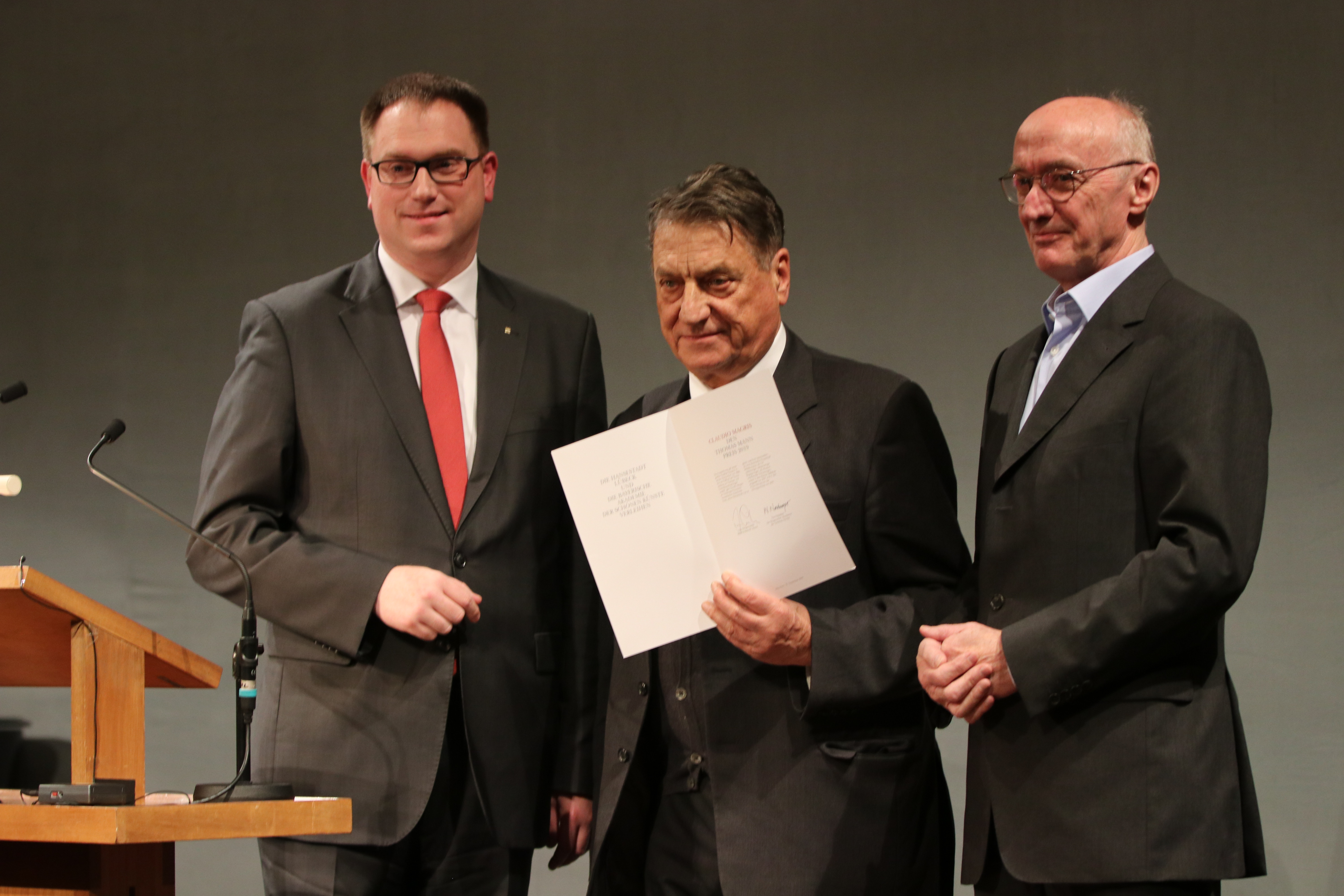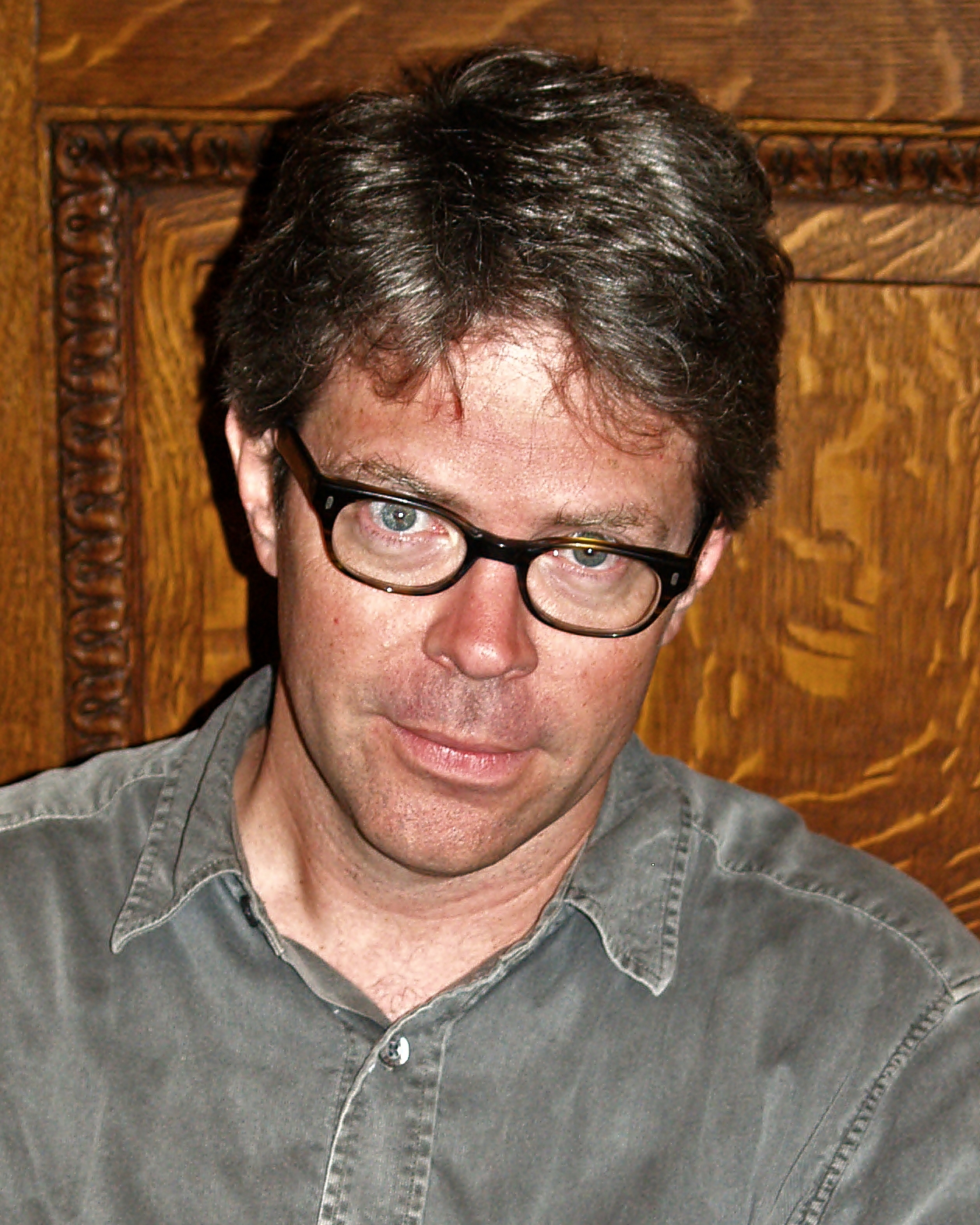|
Thomas Mann Prize
Thomas Mann Prize (''German'': Thomas-Mann-Preis) is a literary prize of Germany. In full the title is "Thomas Mann Prize of the city of Lübeck and the Bavarian Academy of Fine Arts". It is given in alternate years in Lübeck and in Munich. The award is the product of a merger of two prizes in 2010, the Thomas Mann Preis der Hansestadt Lübeck (Thomas Mann Prize Lübeck) and the Großer Literaturpreis (Great Literature Prize) of the Bavarian Academy of Fine Arts. The Thomas Mann Prize Lübeck was first awarded in 1975; the Great Literature Prize was first awarded in 1950. The prize money is €25,000. Recipients * 2010: Christa Wolf * 2011: Jan Assmann * 2012: Thomas Hürlimann * 2013: Juli Zeh * 2014: Rüdiger Safranski * 2015: Lars Gustafsson * 2016: Jenny Erpenbeck * 2017: Brigitte Kronauer * 2018: Mircea Cărtărescu * 2019: Claudio Magris * 2020: Nora Bossong * 2021: Norbert Gstrein * 2022: Jonathan Franzen * 2023: Ralf Rothmann * 2024: Navid Kermani * 2025: Katj ... [...More Info...] [...Related Items...] OR: [Wikipedia] [Google] [Baidu] |
Großer Literaturpreis Der Bayerischen Akademie Der Schönen Künste
Großer Literaturpreis der Bayerischen Akademie der Schönen Künste (in English: Literature Award of the Bavarian Academy of the Fine Arts) was a Bavarian literary prize by the Bayerische Akademie der Schönen Künste. In 2010, it merged with the Thomas Mann Prize. Winners *1950 Friedrich Georg Jünger (Literaturpreis) *1951 Günter Eich *1953 Marieluise Fleißer *1955 Gerd Gaiser und Martha Saalfeld *1957 Alfred Döblin *1959 Agnes Miegel *1960 Otto Flake *1961 Ilse Aichinger und Joachim Maass *1962 Martin Kessel *1963 Horst Lange *1964 Heimito von Doderer *1965 Wolfgang Koeppen *1966 Werner Kraft *1967 Franz Tumler *1968 Elisabeth Schnack *1969 Elias Canetti *1970 Hans Paeschke and Rudolf Hartung *1971 Manès Sperber *1972 Jean Améry *1973 Reiner Kunze *1974 Gershom Scholem *1975 Alfred Andersch *1976 Hans Wollschläger *1977 Dolf Sternberger *1978 Günther Anders *1980 Jürgen Becker *1981 Botho Strauß *1982 Wolfgang Hildesheimer *1983 Ta ... [...More Info...] [...Related Items...] OR: [Wikipedia] [Google] [Baidu] |
Norbert Gstrein
Norbert Gstrein (born 1961) is an Austrian writer. He was born in Mils in Tyrol, the son of the hotelier and ski school director Norbert Gstrein (1931–1988) and Maria Gstrein, née Thurner (born 1935). He grews up with his five siblings in and attended the secondary school from 1971 to 1979 in Imst. From 1979 to 1984, Gstrein studied mathematics in Innsbruck, Stanford and Erlangen. He not completed his PhD (no defense of his thesis ''Zur Logik der Fragen'') in 1988 at the University of Innsbruck, under the supervision of Roman Liedl and Gerhard Frey. Gstrein is the author of more than a dozen books, including ''Winters in the South'', translated into English by Anthea Bell and Julian Evans, and ''A Sense of the Beginning'', translated by Julian Evans. Gstrein's novels have been translated into more than a dozen languages. His early books were all based in his native Tyrol. Among his numerous awards are the Alfred Döblin Prize and the Uwe Johnson Prize. Gstrein lives as a fr ... [...More Info...] [...Related Items...] OR: [Wikipedia] [Google] [Baidu] |
Culture In Lübeck
Culture ( ) is a concept that encompasses the social behavior, institutions, and norms found in human societies, as well as the knowledge, beliefs, arts, laws, customs, capabilities, attitudes, and habits of the individuals in these groups.Tylor, Edward. (1871). ''Primitive Culture''. Vol 1. New York: J. P. Putnam's Son Culture often originates from or is attributed to a specific region or location. Humans acquire culture through the learning processes of enculturation and socialization, which is shown by the diversity of cultures across societies. A cultural norm codifies acceptable conduct in society; it serves as a guideline for behavior, dress, language, and demeanor in a situation, which serves as a template for expectations in a social group. Accepting only a monoculture in a social group can bear risks, just as a single species can wither in the face of environmental change, for lack of functional responses to the change. Thus in military culture, valor is counted a ... [...More Info...] [...Related Items...] OR: [Wikipedia] [Google] [Baidu] |
Awards Established In 1975
An award, sometimes called a distinction, is given to a recipient as a token of recognition of excellence in a certain field. When the token is a medal, ribbon or other item designed for wearing, it is known as a decoration. An award may be described by three aspects: 1) to whom it is given to 2) what 3) by whom, all varying according to purpose. The recipient is often awarded to an individual, a student, athlete or representative of a group of people, be it an organisation, a sports team or a whole country. The award item may be a decoration or an insignia suitable for wearing, such as a medal, badge, award pin or rosette. It can also be a token object such as a certificate, diploma, championship belt, trophy or plaque. The award may also be accompanied by a title of honor, and an object of direct cash value, such as prize money or a scholarship. Furthermore, an is an award given, typically in education, that does not confer the recipient(s) a higher standing but is co ... [...More Info...] [...Related Items...] OR: [Wikipedia] [Google] [Baidu] |
German Literary Awards
German(s) may refer to: * Germany, the country of the Germans and German things **Germania (Roman era) * Germans, citizens of Germany, people of German ancestry, or native speakers of the German language ** For citizenship in Germany, see also German nationality law **Germanic peoples (Roman era) *German diaspora * German language * German cuisine, traditional foods of Germany People * German (given name) * German (surname) * Germán, a Spanish name Places * German (parish), Isle of Man * German, Albania, or Gërmej * German, Bulgaria * German, Iran * German, North Macedonia * German, New York, U.S. * Agios Germanos, Greece Other uses * German (mythology), a South Slavic mythological being * Germans (band), a Canadian rock band * "German" (song), a 2019 song by No Money Enterprise * ''The German'', a 2008 short film * "The Germans", an episode of ''Fawlty Towers'' * ''The German'', a nickname for Congolese rebel André Kisase Ngandu See also * Germanic (disambiguatio ... [...More Info...] [...Related Items...] OR: [Wikipedia] [Google] [Baidu] |
Katja Lange-Müller
Katja Lange-Müller (born 13 February 1951) is a German writer living in Berlin. Her works include several short stories and novellas, radio dramas, and dramatic works. The daughter of Inge Lange, an East German party functionary, Katja Lange-Müller was born in Berlin-Lichtenberg. She was expelled from school at the age of 17 for "unsocialist" behavior. From an early age, she and her circle of friends were carefully watched by the Stasi. Prevented from attending college, she first learned to be a typesetter, and later worked as a nurse in a psychiatric clinic. At the age of 28, she was accepted to the "Johannes R. Becher" Literature Institute in Leipzig, marking the beginning of her career as a writer. Works * * * * * * * * * * * * Awards * Ingeborg Bachmann Prize, 1986 * Alfred Döblin Prize, 1995 * , 1996 * Preis der SWR-Bestenliste, 2001 * Mainzer Stadtschreiber of the city Mainz and the television station ZDF, 2002 * Roswitha Prize of the city Bad Gander ... [...More Info...] [...Related Items...] OR: [Wikipedia] [Google] [Baidu] |
Die Zeit
(, ) is a German national weekly newspaper published in Hamburg in Germany. The newspaper is generally considered to be among the German newspapers of record and is known for its long and extensive articles. History The first edition of was first published in Hamburg on 21 February 1946. The founding publishers were Gerd Bucerius, Lovis H. Lorenz, Richard Tüngel and Ewald Schmidt di Simoni. Marion Gräfin Dönhoff joined as an editor in March 1946. She became publisher of from 1972 until her death in 2002. In 1983 she was joined by former Chancellor of Germany (1949–), German chancellor Helmut Schmidt. Later Josef Joffe and former German federal secretary of culture Michael Naumann joined them as well. The paper's publishing house, Zeitverlag Gerd Bucerius in Hamburg, is owned by the Georg von Holtzbrinck Publishing Group and Dieter von Holtzbrinck, Dieter von Holtzbrinck Media. The paper is published weekly on Thursdays. As of 2018, has additional offices in Brussels, ... [...More Info...] [...Related Items...] OR: [Wikipedia] [Google] [Baidu] |
Navid Kermani
Navid Kermani (; ; ; born 27 November 1967) is a German writer and oriental studies, orientalist. He is the author of several novels as well as books and essays on Islam, the Middle East and Christian-Muslim dialogue. He has won numerous prizes for his literary and academic work, including the Peace Prize of the German Publishers' Association on 18 June 2015. Life Navid Kermani was born the fourth son of Iranian parents in Siegen, West Germany. He began his writing career at age 15 as a local reporter for the ''Westfälische Rundschau''. As a student he published in German national newspapers; from 1996 to 2000 he was a regular contributor to the cultural section of ''Frankfurter Allgemeine Zeitung''. He studied philosophy, Oriental studies and drama in Cologne, Cairo and Bonn. His doctoral thesis has been published in English translation as ''God Is Beautiful: The Aesthetic Experience of the Quran''. He regularly publishes articles, literary reviews and Travel literature, trave ... [...More Info...] [...Related Items...] OR: [Wikipedia] [Google] [Baidu] |
Ralf Rothmann
Ralf Rothmann (born 10 May 1953, in Schleswig, Schleswig-Holstein) is a German novelist, poet, and dramatist. His novels have been translated into several languages, with Knife Edge (''Messers Schneide''), Young Light (''Junges Licht''), Fire Doesn't Burn (''Feuer brennt nicht''), To Die in Spring (''Im Frühling sterben'') and The God of that Summer (''Der Gott jenes Sommers'') being translated into English. The main subjects of his work are the bourgeois and proletarian realities of life in the Ruhr area (e.g., ''Stier'', ''Wäldernacht'', ''Milch und Kohle'' and ''Junges Licht'') as well as Berlin (''Flieh mein Freund'', ''Hitze'', ''Feuer brennt nicht''), with an autobiographically colored focus on alienation, the attempt to escape these situations, and common solitude. With the major novels ''Im Frühling sterben'', ''Der Gott jenes Sommers'' and ''Die Nacht unterm Schnee'', Rothmann goes back to the time of the Second World War and explores the horrors for the individual. The ... [...More Info...] [...Related Items...] OR: [Wikipedia] [Google] [Baidu] |
Jonathan Franzen
Jonathan Earl Franzen (born August 17, 1959) is an American novelist and essayist. His 2001 novel ''The Corrections'' drew widespread critical acclaim, earned Franzen a National Book Award, was a Pulitzer Prize for Fiction finalist, earned a James Tait Black Memorial Prize, and was shortlisted for the International Dublin Literary Award. His novel ''Freedom (Franzen novel), Freedom'' (2010) garnered similar praise and led to an appearance on the cover of Time (magazine), ''Time'' magazine alongside the headline "Great American Novelist". Franzen's latest novel ''Crossroads (novel), Crossroads'' was published in 2021, and is the first in a projected trilogy. Franzen has contributed to ''The New Yorker'' magazine since 1994. His 1996 ''Harper's'' essay "Why Bother? (essay), Perchance to Dream" bemoaned the state of contemporary literature. Oprah's Book Club, Oprah Winfrey's book club selection in 2001 of ''The Corrections'' led to a much publicized feud with the talk show host. Ea ... [...More Info...] [...Related Items...] OR: [Wikipedia] [Google] [Baidu] |
Der Standard
''Der Standard'' () is an Austrian daily newspaper published in Vienna. It is considered a newspaper of record for Austria. History and profile ''Der Standard'' was founded by Oscar Bronner as a financial newspaper and published its first edition on 19 October 1988. German media company Axel Springer SE, Axel Springer acquired a stake in the paper in 1988 and sold it in 1995. Bronner remains the paper's publisher, Gerold Riedmann is editor-in-chief. ''Der Standard'' sees itself as—in a Continental European sense (socially and culturally, but not economically)—Liberalism, liberal and independent. Third parties have described the paper as having a left-liberal stance. Until 2007, the editor-in-chief of the daily was Gerfried Sperl, Alexandra Föderl-Schmid succeeded him in the post. In 2002 the paper was one of four quality daily newspapers with nationwide distribution along with ''Salzburger Nachrichten'', ''Die Presse'', and ''Wiener Zeitung''. Although ''Der Standard'' is i ... [...More Info...] [...Related Items...] OR: [Wikipedia] [Google] [Baidu] |







